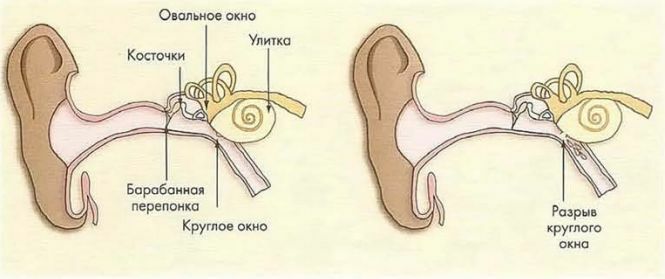
Skip to main content COVID-19 updates, including vaccine. This type of ear damage is caused by a difference in pressure between the inside of the ear and the air around you. A consistent and-at best-standardized assessment of tinnitus- and hearing-related sequelae of trauma is recommended both for the improvement of clinical care and for a deeper understanding of the various pathophysiological mechanisms of trauma-associated tinnitus. A look at treatment and prevention of ear barotrauma. There is an evident mismatch between the high incidence of trauma-associated tinnitus and scarce literature on the topic. Middle ear barotrauma (MEBT), also known to underwater divers as ear squeeze and reverse ear squeeze, is an injury caused by a difference in pressure between the external ear canal and the middle ear.It is common in underwater divers and usually occurs when the diver does not equalise sufficiently during descent or, less commonly, on ascent. Also, posttraumatic stress disorder should be taken into consideration as a potential contributing factor. The most common organs affected by barotrauma are the middle ear (otic barotrauma), sinuses (sinus barotrauma), and the lungs (pulmonary barotrauma). Barotrauma is commonly observed in scuba divers, free-divers, or even in airplane passengers during ascent and descent.

It should also be considered that pulsatile tinnitus can be a sign of life-threatening disorders such as carotid cavernous fistulas, arteriovenous malformations, and carotid dissections. Barotrauma is damage to body tissue secondary to pressure difference in enclosed cavities within the body. Disorders such as ossicular chain disruption, traumatic eardrum perforation, or perilymphatic fistula can be surgically treated. Not only mechanical, pressure-related, or noise-related head traumata but also neck injuries and emotional trauma can cause tinnitus. Results have been complemented by related studies, book chapters, and the authors' clinical experience.

Diving barotrauma can present with: Pain in ear, face or mouth and headaches to major joint pain, paralysis, coma and death. You may have an injury to your ears, sinuses, or teeth. To review the current literature on trauma-associated tinnitus in order to provide orientation for the clinical management of patients with trauma-associated tinnitus.Ī systematic literature search has been conducted in PubMed database applying the search terms posttraumatic tinnitus and trauma-associated tinnitus. Introduction Diving as a profession can be traced back more than 5000 years, yet diving-related disease was not described until Paul Bert wrote about caisson disease in 1878. Barotrauma is an injury to your body caused by a pressure change. Sensorineural hearing loss or vertigo during descent suggests the development of a perilymph fistula the same symptoms during ascent from a deep-sea dive can additionally suggest an air bubble formation in the inner ear.Up to 53% of individuals suffering from traumatic brain injuries develop tinnitus. read more ) or descent (eg, during air travel). It can affect the ear (causing ear pain, hearing loss, and/or vestibular symptoms) or the sinuses. Symptoms usually worsen during rapid increase in external air pressures, such as a rapid ascent (eg, during scuba diving Ear and Sinus Barotrauma Barotrauma is tissue injury caused by a pressure-related change in body compartment gas volume. read more and/or vertigo Dizziness and Vertigo Dizziness is an imprecise term patients often use to describe various related sensations, including Faintness (a feeling of impending syncope) Light-headedness Feeling of imbalance or unsteadiness. Feeling of pressure in the ears (as if underwater) Moderate to severe hearing loss. Anything that causes inflammation or fluid buildup in the area around the tube may cause it to not open normally. This condition happens when there is also a problem with the eustachian tube. Other symptoms may develop if the condition is very bad or goes on for a long time, such as: Ear pain. But most people in these situations don’t develop ear barotrauma. Hearing loss (slight) Sensation of fullness or stuffiness in the ears. More than 10% of people in the US have some degree of hearing loss that compromises their. Ear discomfort or pain in one or both ears. The difference in pressure between internal organs and the.

Symptoms of otic barotrauma are severe pain, conductive hearing loss, and, if there is a perilymph fistula, sensorineural hearing loss Hearing Loss Worldwide, about half a billion people (almost 8% of the world's population) have hearing loss ( 1). An explosive blast and explosive decompression create a pressure wave that can induce barotrauma.


 0 kommentar(er)
0 kommentar(er)
